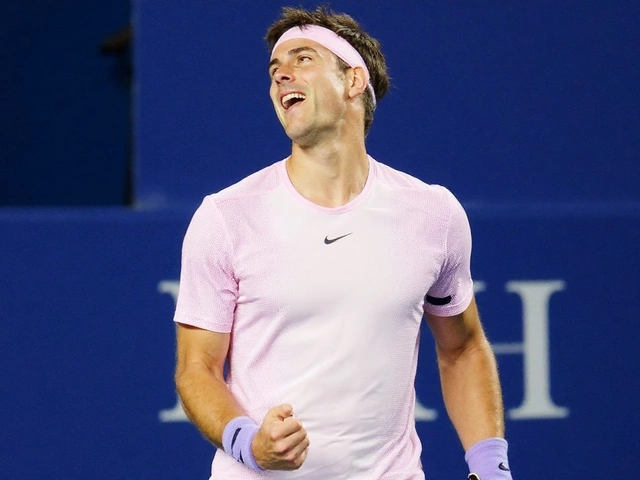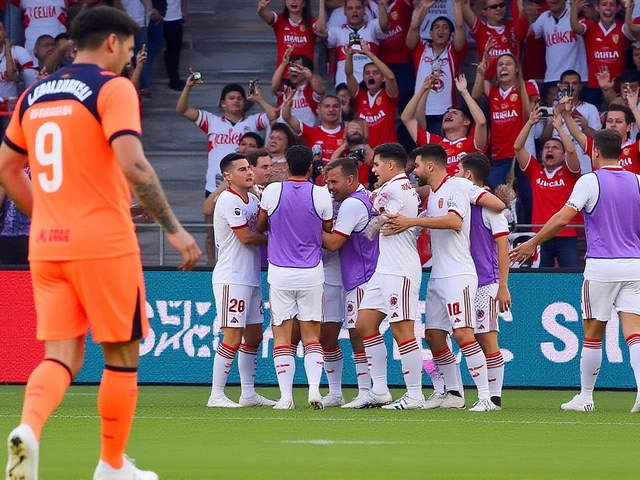In a league where rotation is treated like gospel, one title-winning scrumhalf has decided he’s had enough. Paul de Wet, a core part of the Stormers’ 2021–22 URC triumph, is heading north to the Bulls on a reported two-year deal, convinced Pretoria is the right place to reboot his Springbok hopes.
He’s 29, he’s won major games, and he’s blunt about why he’s moving. The constant shuffle at the Stormers never let him build rhythm. He told Netwerk24 the chopping and changing across the No 9s stalled momentum: when your minutes are unpredictable, your form tends to be, too. For a scrumhalf, rhythm is everything—timing at the base, speed to the ruck, the trust with your flyhalf. Lose that through stop-start selections and you struggle to look like a Test player.
Why the Stormers stalwart is walking away
Stormers fans know the script. The Cape side have had a strong stable of nines for years, with De Wet battling Herschel Jantjies and Stefan Ungerer for the shirt. That competition sharpened standards, but it also spread game time thin. De Wet’s first national alignment camp call-up in March hinted he was edging onto the radar. Then the pathway felt blocked again. He didn’t slam the door on Cape Town—he just said the ladder to the Springboks wasn’t standing in that dressing room anymore.
Rotation has its logic in the URC. South African teams juggle long-haul travel, player welfare plans, and union guidance around managing Springbok contenders. Coaches want depth ready for knockouts. But the same system can hurt players trying to make a late charge for national selection. If you’re seen as one of three equally good options, you might end up as none of them in the eyes of selectors who reward week-after-week control and presence.
De Wet’s take is pragmatic. He’s not expecting a red carpet at Loftus. He knows he’ll have to win the jersey, not inherit it. The draw is the chance—plain and simple—to stake a claim with a long run of starts if he earns them. At this stage of his career, that matters more than anything.
There’s also the style shift. The Bulls are built around power, speed off the floor, and turning altitude into a weapon. Quick ruck ball can make a scrumhalf look electric; slow breakdowns can make him look average. If Pretoria’s ball-carrying pack generates tempo, a nine with sharp service and game management can run matches. That picture appeals to De Wet because it puts the game in his hands, not just at his feet.
Still, he’s stepping into a crowded room. Embrose Papier brings Test caps and gas in broken play. Zak Burger has a big engine and a competitive edge. Keagan Johannes offers spark and growth. That’s not a queue; it’s a contest. But De Wet has walked into that sort of firing line before and come out with medals. If he nails timing with the Bulls’ flyhalves and settles the pack around his voice, he’ll be in the conversation every week.
The Bulls bet, and what it means for the Springbok picture
The international landscape at scrumhalf is brutal. South Africa has options, and selectors like two things above all: consistent minutes and control under pressure. De Wet’s alignment camp invite was a nudge—he’s close enough to be watched, but not close enough to wait. The move says he’d rather put himself under the spotlight than share the glow in Cape Town. If he strings together a run of starts and the Bulls reach the business end of the URC, that’s the tape national coaches tend to queue up.
Contractually, the timing makes sense. A two-year deal gives enough runway for a full season bedding in, then a push. At 29, he’s not “next” anymore; he’s “now”. Scrumhalves often peak later than other backs because decision-making and composure deepen with games. But the window for a debut or a recall doesn’t stay open forever. He’s making his play while he still controls the clock.
There’s also the visibility factor. Staying in South Africa matters if you want a green jersey. URC derbies are high-stakes auditions. Coaches can compare like-for-like performances: Bulls vs Stormers, Bulls vs Sharks, Bulls vs Lions. Those matches set pecking orders as much as European away days do. Win your local head-to-head, and you usually jump a rung.
The Bulls staff will want three things from him fast: clean delivery across all weather, a reliable exit game under pressure, and leadership at the base. If he can speed up their tempo without raising error rates, he’ll make the bench at worst, and likely start. His experience in playoff rugby is a plus—they’re not signing potential; they’re signing know-how.
What about the Stormers? They’re used to this. If one senior nine leaves, another steps forward, and a younger option gets time. The system in Cape Town has survived departures because it produces structure first and relies on individuals second. That’s part of why De Wet felt boxed in: it’s a machine that keeps running. From their side, backing Jantjies, Ungerer, and emerging talent makes strategic sense. From his side, the trade-off—security for opportunity—was no longer worth it.
For the URC as a whole, this is another sign that inter-franchise moves inside South Africa are normal now. Players don’t need to go overseas to reset their careers; they can cross the Vaal or the Hex River and change their trajectory. The rivalry adds spice, sure, but it also creates a thicker middle class of players who’ve proven they can adapt to different systems. That’s good for the league and, ironically, good for the Springboks too.
There are practical hurdles ahead. New playbook, new calls, new combinations. Halfback partnerships take time. The Bulls’ pack has its own rhythms at the cleanout and maul. The back three run different lines off contestable kicks. A scrumhalf is the translator for all of that. If De Wet earns early starts and the Bulls commit to a consistent nine-ten axis, the bedding-in curve shortens.
So what decides whether this gamble pays off? A few simple markers usually tell the story:
- Availability: staying fit and fresh through the travel grind.
- Clarity: picking the right options in exit and attack—no soft turnovers, no panic kicks.
- Control: dictating tempo late in games when the lungs burn and decisions get fuzzy.
- Moments: winning the key derby battles that selectors remember in selection meetings.
He’s not promising headlines. He’s promising a shot. That honesty landed with supporters because it sounds like a guy betting on himself, not blaming anyone. The Stormers didn’t wrong him; their structure just didn’t suit his next step. The Bulls aren’t rescuing him; they’re offering a runway. The Springboks aren’t waiting; they’re watching.
Plenty of moves look tidy on paper and messy on grass. This one has a workable logic. De Wet gets a chance to chase rhythm and minutes. The Bulls get a seasoned operator who knows what it takes to finish seasons, not just start them. And the league gets another storyline that makes every derby a little spikier than the last.
He said it himself: no one hands you a No 9 jersey. You take it, keep it, and make it impossible to take away. Pretoria will show if he can do that. If he does, the national picture changes fast for a player who has hovered on the edge of it for too long.




De Wet's move to the Bulls is a textbook case of a player seeking more contiguous minutes to fine‑tune his half‑back cadence, especially given the Stormers' perpetual rotation model.
When you’re shuffled every other match, the timing of your service to the fly‑half degrades, and the statistical output follows suit.
In a high‑intensity URC environment, coaches reward consistency over sporadic brilliance.
The Bulls' game plan, centered on rapid ruck ball, should give him the platform to showcase those metrics.
Bottom line: more predictable starts equal a better shot at Springbok recognition.
From a regulatory perspective, the contractual arrangement aligns with the union's stipulations concerning player welfare and inter‑franchise mobility.
It also satisfies the South African Rugby Union's guidelines on maintaining competitive balance among domestic teams.
Therefore, the transfer adheres to both legal and strategic frameworks.
The drama surrounding De Wet’s departure reads like a saga fit for a sports opera, with each paragraph adding a fresh twist of intrigue and ambition.
First, the relentless rotation at the Stormers turned what could have been a steady climb into a fragmented carousel, leaving the nine in a perpetual state of improvisation.
Second, the psychological toll of never knowing whether you’ll start the next week cannot be overstated, especially for a scrum‑half whose confidence hinges on rhythm.
Third, the Bulls present a contrasting philosophy, where power forwards dictate a forward‑driven tempo that dovetails with a quick‑service half‑back.
Fourth, this stylistic shift is precisely what De Wet has been craving - a platform where his razor‑sharp decision‑making can be consistently displayed.
Fifth, the national selectors have openly admitted that they value sustained minutes and clear leadership at the base above sporadic flashes of brilliance.
Sixth, by securing a two‑year deal, De Wet is effectively buying himself a controlled environment to rewrite his narrative.
Seventh, the Bulls’ current roster, while competitive, still offers an opening for a veteran play‑maker to take the helm of the base‑game operations.
Eighth, his prior experience in a championship‑winning side adds a pedigree that cannot be ignored when the pressure cooker of the URC heats up.
Ninth, the anticipation of a possible Springbok recall adds a layer of urgency that will likely sharpen his preparation and performance.
Tenth, the move also sends a message to other players stuck in rotation‑heavy squads that a domestic switch can revitalize a career without the need to venture abroad.
Eleventh, the broader league benefits from this intra‑country mobility, as it raises the competitive stakes of every derby.
Twelfth, fans of both franchises will be watching the evolving partnership between De Wet and the Pretoria fly‑halves with a mixture of hope and skepticism.
Thirteenth, the ultimate test will be whether De Wet can translate his accumulated knowledge into tangible outcomes on the scoreboard.
Fourteenth, if he succeeds, the narrative will shift from “blocked talent” to “strategic resurgence.”
Fifteenth, and perhaps most importantly, his journey underscores the principle that elite athletes must sometimes seize control of their destiny, even if it means stepping into a crowded room and proving themselves all over again.
It's worth noting that the Bulls' forward pack offers a different tempo, which can complement De Wet's distribution skills.
Their emphasis on quick ball off the ruck may reduce the latency that previously plagued his game in Cape Town.
Moreover, integrating his experience with the Bulls' existing half‑backs can create a more cohesive attacking axis.
From a cultural perspective, sharing his championship mindset could elevate the squad's mental resilience.
Because the competition for the No 9 jersey remains fierce, his professionalism will be a key differentiator.
Overall, his presence should enrich the team's tactical flexibility while giving him the platform he desires.
He’ll have to earn every minute.
Considering the broader implications, De Wet's decision reflects a calculated risk that aligns with the principle of agency in professional sport.
His pursuit of consistent playing time is not merely personal ambition but a strategic move that could benefit the national pipeline.
The Bulls’ system, predicated on high‑intensity phases, offers a fertile ground for his skill set to flourish.
Simultaneously, his veteran insights can serve as a mentorship conduit for emerging talent within the squad.
By embracing this new environment, he embodies the adaptive mindset required in modern rugby.
The upcoming season will test his ability to blend his experience with the Bulls’ evolving game plan.
Success will hinge on his capacity to command the base, dictate tempo, and minimize error under pressure.
Should he achieve these objectives, the Springbok selectors will have a compelling case to consider him for the next international window.
The Bulls’ tactical approach appears to suit a nine seeking more structured playtime.
His integration should be straightforward given the team's emphasis on swift ball distribution.
De Wet’s decision is a smartcareer move that could finally give him the platform to showcase his speed and vision.
The move aligns with the selector’s preference for players who demonstrate sustained performance and clear leadership at the base.
By delivering clean, decisive service in a high‑tempo environment, De Wet can enhance his candidacy for the Springboks.
His previous championship experience adds a valuable dimension to the Bulls’ strategic depth.
Consistent starts combined with effective game management will be the metrics to watch.
In sum, this transfer offers both the player and the franchise a mutually beneficial opportunity.
Yo, this might be the fresh start De Wet needs to finally lock down a Springbok spot!
Getting regular minutes in Pretoria’s fast‑paced game could light up his stats.
Fans should see a more confident nine calling the shots.
Let’s hope he brings that winning vibe to the Bulls and makes some noise.